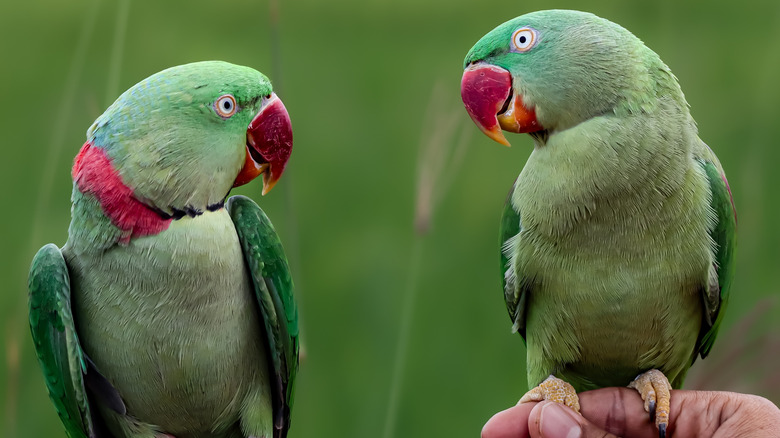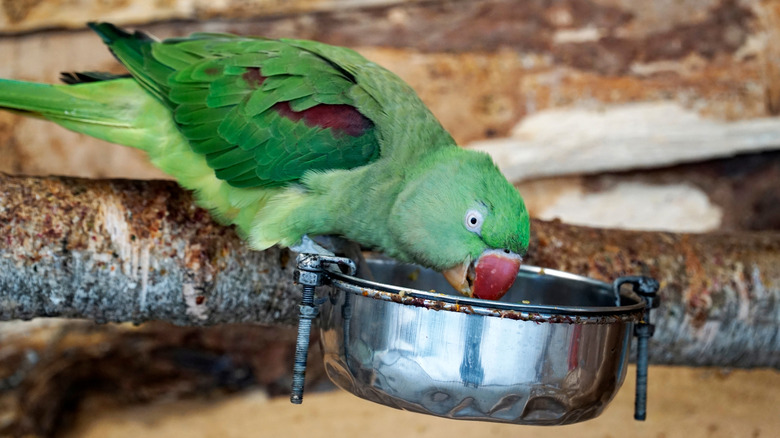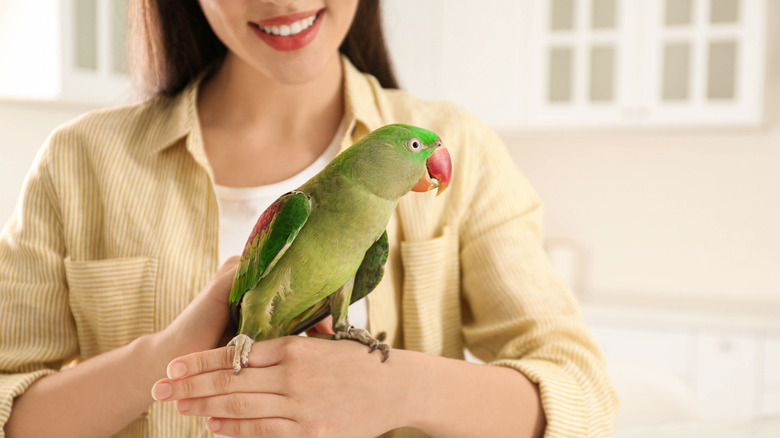Diet For Alexandrine Parrots
The Alexandrine parrot, also known as the Alexandrine parakeet, embodies a storied and dynamic history that befits its striking appearance. Among the first domesticated parrot species, the Alexandrine was introduced to Europe from South and Southeast Asia over 2,000 years ago during Alexander the Great's conquests — hence this species' name. Valued for their intelligence, knack for bonding with humans, speech-mimicking ability, and stunning presentation — vibrant green plumage, red shoulder patches, and long tails — they became prized pets of ancient nobility in India, Greece, and Rome. These large parakeets, measuring 23 to 24 inches (including their tails) and weighing 7 to 11 ounces, can live 25 to 30 years, with some reaching up to 40 years, in captivity when given proper care. Naturally, this rich history and these birds' captivating traits continue to make them cherished companions.
As with any pet, their longevity and health depends not only on proper care but also on a well-balanced and varied diet underpinned by their in-the-wild nutritional intake. But unlike other pets, the Alexandrine parrot will, in so many (human) words, let you know when it's not happy.
Diet essentials for Alexandrine parrots
The balanced diet of Alexandrine parrots mirrors their natural, diverse feeding habits, following a simple formula of foods to feed these parakeets: vegetables, fruits, grains, and protein. Fresh vegetables like broccoli, spinach, carrots, and sweet potatoes, alongside fruits such as seedless apples, bananas, and blueberries, should form a significant part of their daily meals. In the wild, these parrots thrive on a seasonal diet of wild and cultivated seeds, fruits like mangoes and berries for natural sugars, flower buds for carbohydrates, and nuts and grains from crops like maize and millet. This natural variety provides year-round nourishment and highlights their adaptation to seasonal changes. To safely replicate this in captivity, fresh produce should always be cut into bite-sized pieces, with seeds, pits, and any other toxic parts of the produce removed.
Given that their ecosystem is a human home and not their natural habitat, your parakeet's store-bought food pellets should form 40% to 70% of its diet, as they're fortified with essential vitamins and minerals needed for optimal health. Supplement this with wholesome grains like quinoa, wild rice, and oats, which provide valuable carbohydrates and fiber. Regularly rotating food types not only maintains nutritional balance but also keeps the parrot mentally stimulated and engaged.
Treats can be a delightful addition but should be given sparingly. High-fat options like seeds and nuts, including sunflower seeds, almonds, and walnuts, are best reserved as occasional rewards during training or to reinforce positive behavior. Sprouted seeds are a healthier, nutrient-rich alternative for more frequent treats. For added variety, protein, and calcium, unsalted dairy products like cheese or yogurt — just not milk, as it will flare up your bird's lactose intolerance — can also be included in moderation.
Foods to avoid feeding Alexandrine parrots
Certain foods must be strictly avoided, as they pose significant health risks to Alexandrine parrots. Avocado is highly toxic and potentially fatal, while chocolate and caffeine contain stimulants that are harmful to these beauties. Alliums are off the table, too, as onions and garlic can cause digestive issues and anemia, and raw beans and fruit pits harbor toxins that are dangerous to these birds. Furthermore, junk foods, including salty, sugary, or fatty snacks, provide no nutritional value and should be avoided entirely. For maximum safety, wash fresh foods thoroughly to remove pesticides.
As with any pet, maintaining a healthy diet for Alexandrine parrots requires consistent care and attention. Provide clean, fresh water at all times, and keep feeding areas hygienic to prevent contamination. Regular consultations with an avian veterinarian are essential for tailoring dietary practices to meet your parrot's specific needs. Overall, though, a diet rooted in nature, combined with attentive care, will promote a vibrant, healthy, and happy life for these extraordinary birds, giving them decades with which to conquer your heart.


